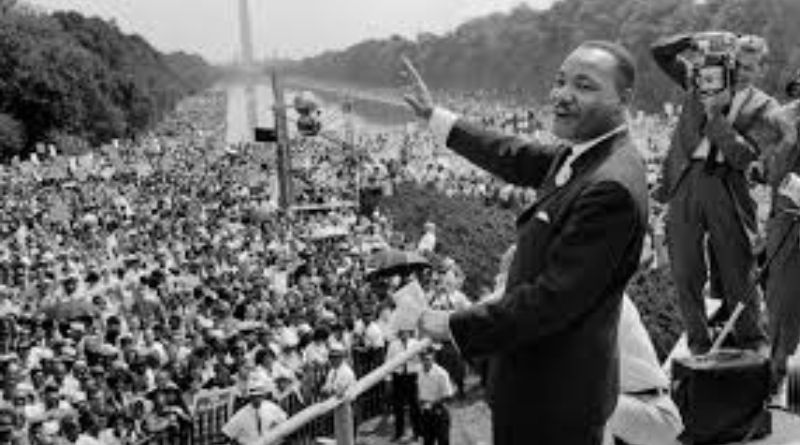
Martin Luther King Jr. stands as one of the most influential figures in modern history. His contributions to the civil rights movement and his advocacy for racial equality and social justice changed the fabric of American society and left a lasting impact on the world. Through his leadership, vision, and commitment to nonviolent protest, King helped to dismantle the deeply entrenched systems of segregation and discrimination in the United States, while inspiring generations of people worldwide to stand up for justice and equality.
In this article, we’ll explore the various ways in which Martin Luther King Jr. changed the world, focusing on his leadership in the civil rights movement, his commitment to nonviolent resistance, and the legacy he left behind.
Table of Contents
1. Leading the Civil Rights Movement
Martin Luther King Jr.’s most direct and profound impact was his leadership of the civil rights movement in the 1950s and 1960s. King’s leadership helped to transform the movement from a series of localized protests into a national movement that challenged the systemic oppression of Black Americans and ultimately led to significant legislative changes in the United States.
The Montgomery Bus Boycott (1955-1956)
King’s rise to national prominence began with his leadership in the Montgomery Bus Boycott, which started in 1955 after Rosa Parks was arrested for refusing to give up her seat to a white person on a segregated bus. As president of the Montgomery Improvement Association (MIA), King helped organize a citywide boycott of the bus system, which lasted for over a year. The boycott was a powerful act of resistance against segregation and led to the eventual desegregation of the Montgomery bus system by the U.S. Supreme Court.
This victory gave King the recognition he needed to become a leading figure in the broader civil rights movement. The success of the boycott showed that nonviolent protest could be an effective strategy for confronting injustice.
The Southern Christian Leadership Conference (SCLC)
In 1957, King helped found the Southern Christian Leadership Conference (SCLC), an organization dedicated to using nonviolent civil disobedience to fight segregation and racial injustice across the South. Under King’s leadership, the SCLC organized a number of major campaigns, including voter registration drives, desegregation efforts, and marches that drew national attention to the civil rights cause.
King’s ability to unite various activist groups and leaders around the cause of racial justice made him a key figure in the movement. His role in organizing and leading peaceful protests brought the issue of racial inequality to the forefront of American politics.
The March on Washington (1963)
One of King’s most iconic moments came during the March on Washington for Jobs and Freedom in 1963. On August 28, more than 250,000 people gathered in Washington, D.C., to demand civil rights, economic equality, and an end to racial segregation. It was here that King delivered his famous “I Have a Dream” speech, a call for racial harmony, justice, and equality.
The March on Washington was a watershed moment in the civil rights movement. It helped to solidify public support for the movement and pressure the U.S. government to take action on civil rights issues. King’s speech, in particular, became a defining moment in the fight for equality and has been remembered as one of the most powerful speeches in American history.
2. Promoting Nonviolent Resistance
One of Martin Luther King Jr.’s most important contributions to social justice was his unwavering commitment to nonviolent resistance. King was deeply influenced by the philosophy of Mahatma Gandhi, who had led India to independence through peaceful civil disobedience. King adapted Gandhi’s principles of nonviolence to the American civil rights struggle, arguing that violence would only perpetuate injustice and hatred, while nonviolence could transform society.
King’s emphasis on nonviolence was more than just a political tactic; it was a moral philosophy that sought to change the hearts and minds of both oppressors and oppressed. His belief in the power of love and reconciliation resonated with people across the world and helped to elevate the civil rights movement into a moral cause with universal appeal.
The Power of Peaceful Protest
Through peaceful protests such as sit-ins, marches, and boycotts, King demonstrated the power of nonviolent resistance in challenging the status quo. In cities like Birmingham, Selma, and Montgomery, King and other activists faced violent opposition, including attacks by police dogs, fire hoses, and physical beatings. Yet, they remained committed to nonviolence, and their bravery in the face of such violence drew national and international attention to the cause.
King’s insistence on nonviolence even in the face of brutal opposition helped to galvanize public support for the civil rights movement and put pressure on lawmakers to act. His commitment to nonviolence also helped to avoid the deepening of racial divisions and provided a moral foundation for the movement.
The Nobel Peace Prize (1964)
In 1964, Martin Luther King Jr. was awarded the Nobel Peace Prize for his efforts to promote nonviolence and social justice. At the age of 35, he became the youngest person to receive the prestigious award at the time. The recognition of King’s work by the international community highlighted the global significance of the civil rights movement and solidified his status as a leading advocate for peace and justice.
3. Paving the Way for Landmark Legislation
The civil rights movement, under King’s leadership, led to significant changes in U.S. law and society. King’s ability to mobilize millions of people and his efforts to appeal to the conscience of both the American public and the government were instrumental in securing key legislative victories.
The Civil Rights Act of 1964
One of the most important legislative victories of the civil rights movement was the passage of the Civil Rights Act of 1964, which banned discrimination on the basis of race, color, religion, sex, or national origin. The act addressed many of the issues King had been fighting for, including segregation in public places, employment discrimination, and unequal treatment in education.
The Civil Rights Act of 1964 marked a turning point in American history, signaling the end of legalized segregation in public life and opening doors to greater opportunities for African Americans. It was a testament to the power of peaceful protest and King’s vision for a more just society.
The Voting Rights Act of 1965
Another key piece of legislation resulting from King’s efforts was the Voting Rights Act of 1965, which aimed to eliminate barriers to voting for African Americans, particularly in the Southern states where literacy tests, poll taxes, and other discriminatory practices had been used to prevent Black citizens from voting.
King’s leadership in the Selma to Montgomery marches in 1965, where activists demanded the right to vote, played a crucial role in pushing the federal government to act. The Voting Rights Act is considered one of the most important pieces of civil rights legislation in American history.
4. Inspiring Global Movements for Justice
Although King’s focus was primarily on racial inequality in the United States, his message of nonviolence, peace, and justice had a global impact. King’s advocacy for human rights and his belief in the power of peaceful resistance inspired movements around the world, from South Africa’s anti-apartheid struggle to India’s fight for independence.
King’s philosophy of nonviolent protest has been embraced by many other social justice movements globally. Activists like Nelson Mandela, Desmond Tutu, and Cesar Chavez all cited King’s influence in their struggles for justice and equality.
A Legacy of Hope and Change
King’s ability to inspire people worldwide continues to shape movements for justice today. His message remains relevant to ongoing struggles for racial equality, economic justice, and peace around the world. Martin Luther King Jr. demonstrated that one individual’s vision, when combined with the efforts of others, can change the course of history.
FAQs About How Martin Luther King Jr. Changed the World
1. What was Martin Luther King Jr.’s most significant contribution to the civil rights movement?
King’s most significant contribution was his leadership in the fight for racial equality, particularly through peaceful protests, such as the Montgomery Bus Boycott, the March on Washington, and the Selma marches. His advocacy led to landmark legislation like the Civil Rights Act of 1964 and the Voting Rights Act of 1965.
2. How did Martin Luther King Jr. promote nonviolence?
King promoted nonviolence by adhering to the teachings of Mahatma Gandhi and advocating for peaceful resistance to oppression. He believed that nonviolent protests, like sit-ins and marches, could bring about social change without perpetuating hatred and violence.
3. Did Martin Luther King Jr. receive any awards for his work?
Yes, Martin Luther King Jr. was awarded the Nobel Peace Prize in 1964 for his leadership in the civil rights movement and his commitment to nonviolent resistance.
4. What is the legacy of Martin Luther King Jr. today?
King’s legacy continues to influence social justice movements worldwide. His advocacy for racial equality, peace, and nonviolence remains a source of inspiration for modern-day movements for civil rights and human rights.
5. How did Martin Luther King Jr. change the world globally?
King’s philosophy of nonviolent protest and human rights inspired global movements, including the anti-apartheid struggle in South Africa and various other civil rights movements around the world. His impact is felt in the ongoing fight for justice and equality across the globe.
Conclusion
Martin Luther King Jr. forever changed the world through his leadership in the civil






